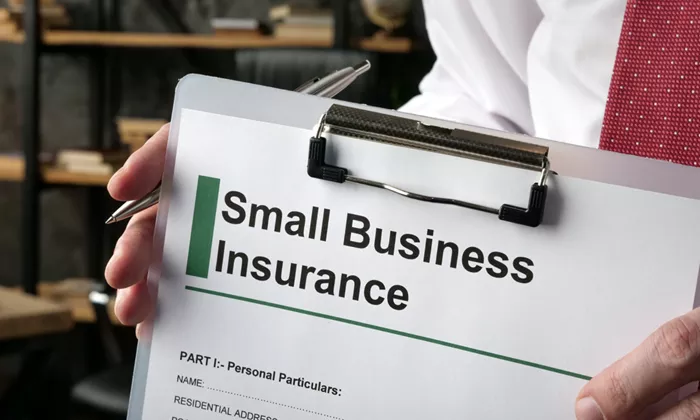Many people today work for themselves. Some are freelancers. Others are contractors or run small businesses. While being your own boss gives you freedom, it also comes with a lot of responsibilities—especially when it comes to insurance.
One of the most common questions self-employed people ask is: “Do I need workers’ compensation insurance?”
Let’s break it all down in a way that’s easy to understand. We’ll look at what workers’ comp is, who needs it, when it’s required, and how it helps.
What Is Workers’ Compensation Insurance?
Workers’ compensation insurance—also called workers’ comp—is a type of insurance that helps cover costs when an employee gets hurt or sick because of their job. It usually pays for things like:
Medical bills
Lost wages
Ongoing care (like physical therapy)
Disability benefits
Death benefits (for the family of a worker who dies on the job)
In most states, if you have employees, the law says you must carry workers’ comp insurance. But what if you’re self-employed? Or you don’t have any employees?
That’s where things get a little more complicated.
Who Is Considered Self-Employed?
Self-employed workers come in many forms, including:
Independent contractors
Freelancers
Sole proprietors
Consultants
Gig workers (like rideshare or delivery drivers)
Some of these people work alone. Others hire help on a short-term basis. Some work in risky jobs, like construction. Others work behind a desk all day.
Each situation is different—and that’s why the need for workers’ comp isn’t always the same.
Are Self-Employed People Legally Required to Have It?
In most states, self-employed people are not required by law to carry workers’ compensation insurance for themselves. However, there are some important exceptions and situations where it may still be needed—or even required by others.
Let’s go through the key cases where you might need it:
1. You Work in a High-Risk Industry
If you work in construction, roofing, electrical, plumbing, or other physical trades, you face a much higher risk of injury. Even if the law doesn’t force you to buy workers’ comp, it may be a smart decision.
For example:
A contractor who falls off a ladder and breaks a leg may be out of work for weeks.
A welder could suffer burns or eye injuries.
A painter might develop back or shoulder problems over time.
In these cases, having your own workers’ comp policy can help pay for treatment and lost income. Without it, you may have to pay everything out of pocket.
2. You Work With or for Other Businesses
In some states, general contractors are required to make sure all their subcontractors have workers’ comp—even if those subcontractors are self-employed.
This means if you want to get hired for a job, you may need to show proof that you have your own coverage.
Some business owners or clients also ask for it just to limit their own liability. They don’t want to be held responsible if you get hurt while doing work for them.
So even if it’s not a legal requirement, it might still be a requirement for doing business.
3. You Hire Other People
Once you start hiring people—even part-time or temporary help—you may be legally required to carry workers’ comp insurance in most states.
Even if your workers are 1099 contractors, your state may still consider them “employees” under workers’ comp laws, depending on how much control you have over their work.
If you’re not sure whether someone counts as an employee, talk to an insurance agent or employment attorney. Misclassifying workers can lead to big fines and legal problems.
4. You Want to Protect Yourself
You don’t need a law to tell you what’s smart.
If you work in a job where there’s a real chance of getting injured—and your income depends on your ability to work—getting your own workers’ comp insurance may simply be the responsible thing to do.
Even a simple injury, like a broken arm, could keep you off the job for weeks. And most health insurance plans don’t cover lost income. That’s where workers’ comp can help.
It’s a safety net. Without it, you may be putting your health and finances at risk.
How Does Workers’ Comp Help the Self-Employed?
Here’s what a self-employed workers’ comp policy can do for you:
Pays medical expenses if you get hurt or sick from work.
Replaces lost income if you can’t work for a while.
Covers rehab or therapy costs so you can recover faster.
Provides peace of mind so you can focus on your work—not your risks.
It’s especially helpful if you don’t have disability insurance or if you’re the only breadwinner in your household.
Some policies even cover injuries that happen while traveling for work, working from home, or using equipment related to your business.
What Does It Cost?
The cost of workers’ comp insurance for self-employed workers depends on:
Your job type (risk level)
Your annual income
Your state laws
Your past claims history
Whether you have employees
In general, low-risk jobs like graphic design or consulting may cost just a few hundred dollars per year. High-risk jobs like roofing or demolition can cost much more—sometimes thousands per year.
You can often get quotes quickly from insurance companies or brokers online. Some states also run their own insurance funds for workers’ comp.
What Happens If You Don’t Have It?
If you’re not required by law to have workers’ comp, and you don’t carry it, you’re not breaking the rules. But you may be putting yourself in a tough spot.
Here’s what can happen if you get injured without it:
You’ll have to pay all your own medical bills.
You won’t get any wage replacement while you recover.
You might miss out on jobs if clients require insurance.
You may face legal trouble if the state reclassifies your workers as employees and you’re uninsured.
That’s why many smart contractors and freelancers get coverage—even if it’s not required.
What’s the Difference Between Workers’ Comp and Disability Insurance?
Good question! These two are often confused.
Workers’ compensation only covers injuries or illnesses that happen because of your job.
Disability insurance, on the other hand, pays out when you can’t work—no matter how you got hurt. It could be from a skiing accident, a car crash, or even a serious illness.
If you’re self-employed, both types of insurance may be worth looking into. They work well together to protect your income from different kinds of risks.
How to Get Workers’ Comp if You’re Self-Employed
If you decide to get workers’ comp insurance, here’s how to start:
Check your state’s rules
Some states allow self-employed people to get coverage easily. Others may have more paperwork.
Contact an insurance company or broker
Many companies offer policies for self-employed workers. You can compare rates and coverage.
Apply for a policy
You’ll need to share your income, job type, and business details.
Get a certificate of insurance
This proves you’re covered and can be shared with clients.
Review it each year
As your income or team grows, you may need to update your coverage.
Conclusion
So, do independent contractors need workers’ compensation insurance?
Legally, maybe not. But practically, often yes.
If you’re working in a risky job, hiring others, or doing work for clients who require it, getting your own workers’ comp policy is often a smart move.
It can protect your health, your income, and your future. And for many self-employed workers, that peace of mind is worth the cost.
If you’re unsure, talk to a licensed insurance agent in your state. They can help you understand your risks and choose the best coverage for your situation.
Related topic:
What Are the 3 Main Types of Property Insurance Coverage?
What Does Personal Property Insurance Actually Cover?
What is a Property Insurance Policy and Why Do You Need One?






















